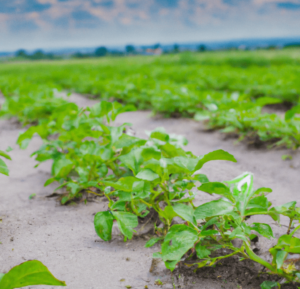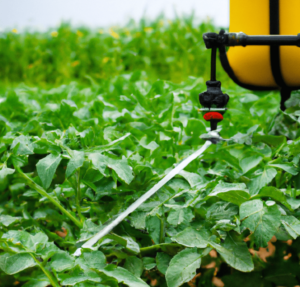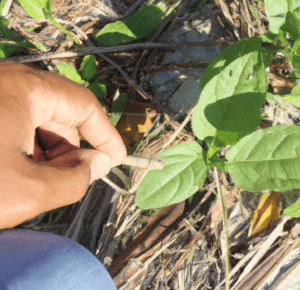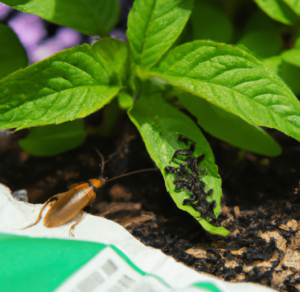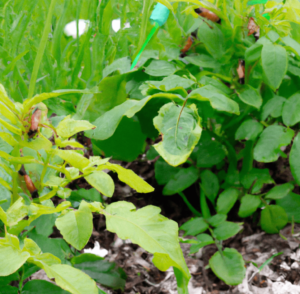The control of pests that might harm or kill their plants is one of the major problems that gardeners have. While there are various chemical pest control options available there are so many dangers in using chemical fertilizers and pesticides on edible plants, these techniques can be detrimental to people and other non-target species as well as the environment. To combat pests, many gardeners are turning to organic pest management techniques, which rely on natural remedies. Let’s look into the benefits of using organic pest control methods in your garden!
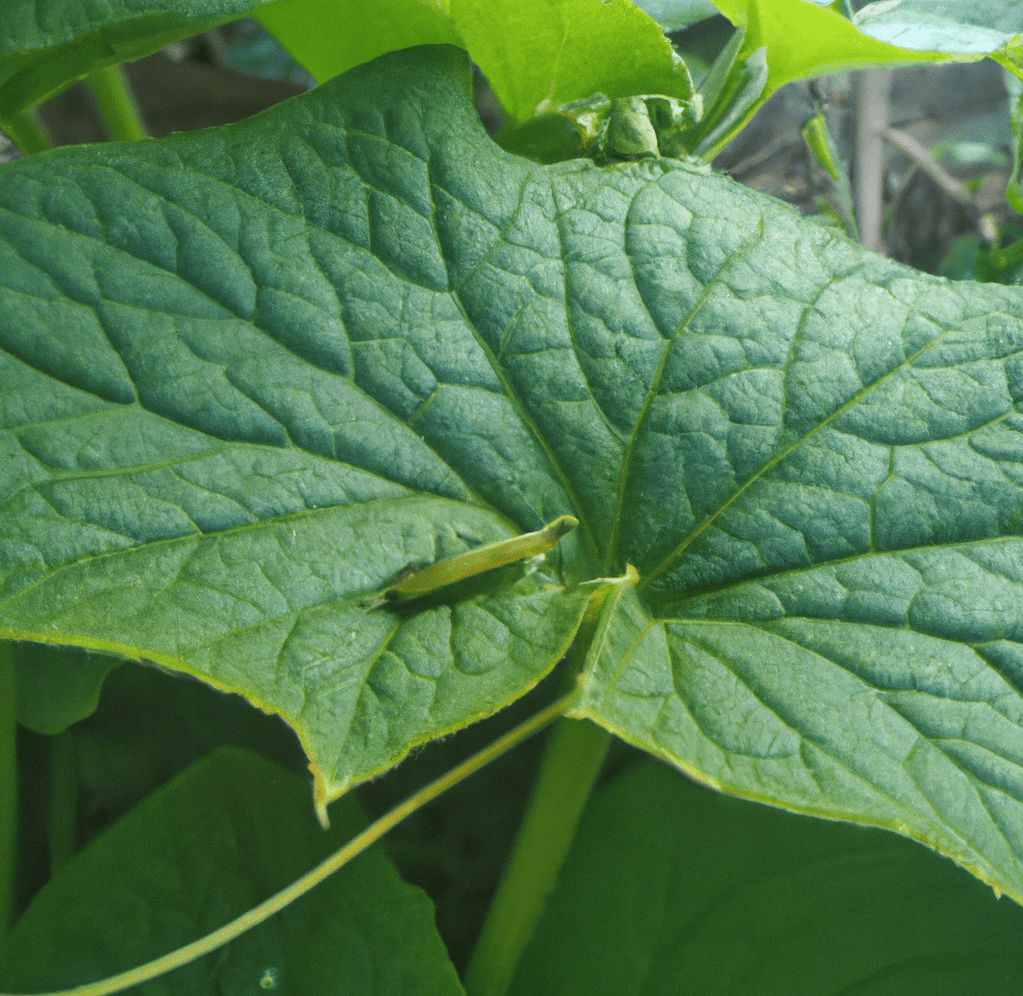
What Is Organic Pest Control?
The management and control of insects and other tiny animals that affect plants and crops are referred to as pest control. Organic pest control offers a more environmentally friendly technique of managing pests than typical pest control approaches, which may involve the use of chemicals and synthetic materials.
In order to control insects without harming the environment, organic pest control uses natural techniques and ingredients. This approach uses a mix of cultural, physical, and biological tactics to control pests and safeguard plants. Pest populations can be decreased and plant health can be improved by cultural practices including rotating crops and enhancing soil quality.
Pests can also be managed physically through the use of barriers and traps. The benefits of using organic pest control methods in your garden also heavily rely on biological methods, such as the use of natural predators and the introduction of beneficial insects. Also, there are natural weed control methods available! Organic pest management has the potential to be longer-lasting, more effective, and more sustainable in addition to being more environmentally friendly. Plants are better protected from pest damage and are more likely to grow when an ecosystem is healthy and balanced.
Definition and Explanation of Organic Pest Control Methods
To learn about the benefits of using organic pest control methods in your garden, here are the different methods:
- Biological controls: Using natural predators, parasites, or pathogens to reduce the number of dangerous insects is known as biological control. As an illustration, since lacewings and ladybugs eat aphids, a common garden problem, they are frequently utilized as biological controls. As these natural predators will only eat the specific pests they are designed to control and will not affect other beneficial insects or garden plants, using biological controls can be an effective strategy to manage pests without harming the environment.
- Insects: Insects are essential to ecology and to preserving the balance between good and bad species. While some insects can be detrimental to gardens and crops, others are necessary for pollination and pest population management. Organic pest management techniques aim to increase the number of helpful insects while using natural approaches to control the population of destructive insects.
- Gardening: Using a variety of techniques, including crop rotation, companion planting, and the use of natural insecticides, a garden can achieve organic pest control. Crop rotation is the practice of planting several crops in the same location each year in order to prevent the accumulation of pests and diseases in the soil. Planting crops that benefit one another is known as companion planting. For example, planting marigolds with tomatoes to ward off pests is an example of companion planting. Neem oil is one natural insecticide that can be used to manage pests, but it’s crucial to carefully follow the application directions to protect beneficial insects and other garden creatures.
The benefits of using organic pest control methods in your garden include that they are a less harmful option for the environment than synthetic pesticides because it doesn’t impact local species like birds, insects, or beneficial insects. As synthetic pesticides can have long-lasting impacts on the environment and can contaminate groundwater and other natural resources, it also aids in maintaining the health of the soil.
Comparison to Chemical Pest Control Methods
Many gardeners use either biological controls or chemical pest control techniques to keep their plants healthy and free of pests. Even if both strategies have advantages and disadvantages, it’s crucial to know how they differ before choosing one over the other. As the name implies, biological controls use naturally occurring parasites and predators to manage pests. Given that it doesn’t require harsh chemicals, this method is frequently regarded as being more environmentally friendly and sustainable. However, biological controls might not be as successful in reducing serious infestations and may take longer to take action.
On the other hand, chemical pest management techniques employ the use of synthetic chemicals to eradicate or deter pests. Although this approach is frequently speedier and more efficient in eradicating infestations, it may harm beneficial insects and have detrimental effects on the ecosystem. Always use chemical pest control products responsibly and in accordance with the manufacturer’s recommendations.
It’s crucial to take into account both your personal tastes and the specific pest issue you are experiencing when choosing a pest control approach for your garden and the benefits of using organic pest control methods in your garden. Sometimes the best course of action is to combine biological and chemical techniques. In the end, your decision about biological controls against chemical pest control measures will be influenced by a number of variables, such as the severity of the infestation, the types of plants in your garden, and your personal attitudes toward the use of chemicals in the environment.
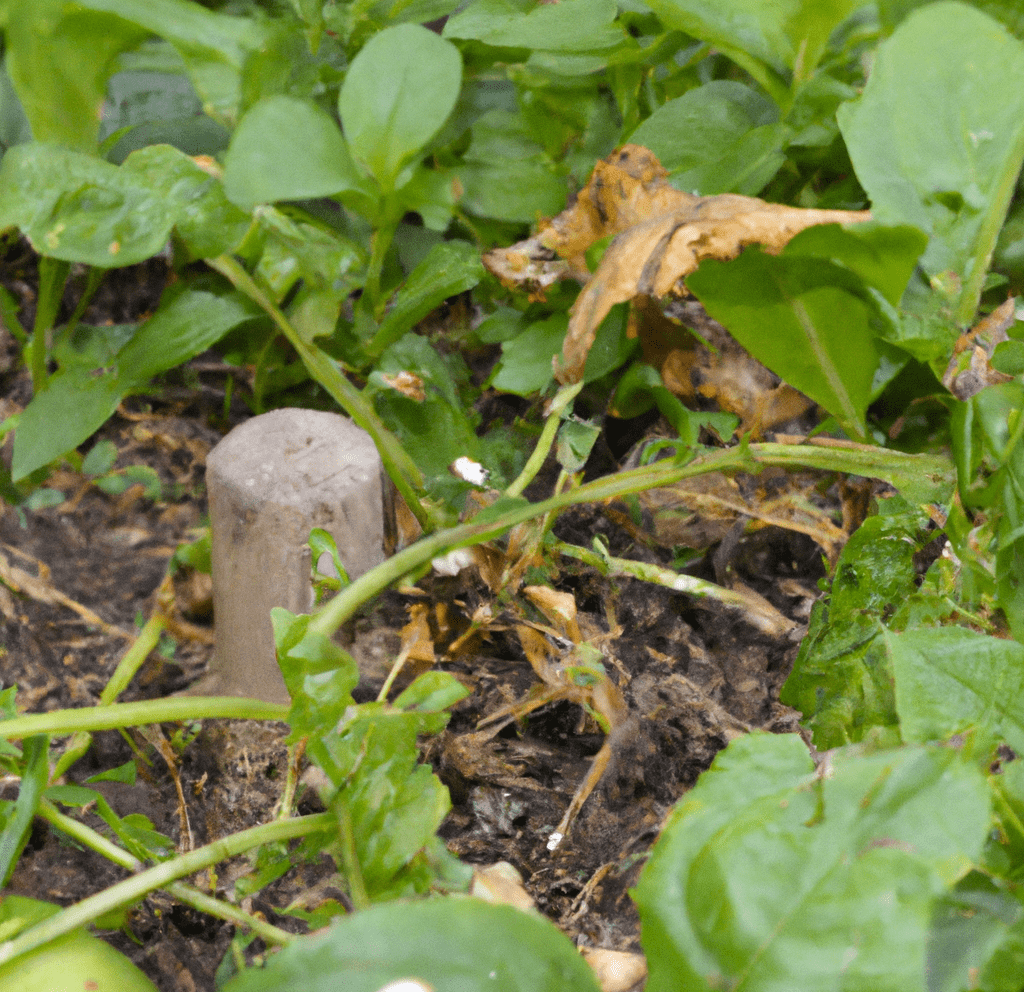
Benefits of Organic Pest Control in the Garden
An approach to treating pests in gardens known as “organic pest control” relies on using natural, biological controls and materials rather than chemical pesticides. This method has a number of advantages that are good for the environment, plants, the health of the soil, and the ecosystem as a whole. Here are the benefits of using organic pest control methods in your garden:
- Soil Ecosystem: Organic pest control techniques support a healthy and diversified soil ecosystem, which in turn improves soil health and biodiversity. The soil is kept rich with beneficial bacteria, insects, and other species that help to increase soil structure, fertility, and water-holding capacity by avoiding the use of toxic pesticides.
- Reduced Water Source Contamination: Chemical pesticides can contaminate adjacent water sources, including wells, streams, and rivers, by leaking into the soil. By utilizing natural and biodegradable ingredients that are less likely to harm the environment, organic pest management techniques assist to lower this danger.
- Safe Helpful Insects: Chemical pesticides can have a severe effect on beneficial insects and pollinators like bees, butterflies, and ladybugs which are crucial to sustaining a healthy ecosystem. These helpful insects are less harmed by organic pest management techniques, which support a flourishing and diverse population.
- Increased Nutritious Value of Crops: By fostering a robust and diversified soil ecosystem, organic pest management techniques can aid in raising the nutritional value of crops. This results in stronger, healthier plants that are better able to fend off pests and illnesses.
Examples of Organic Pest Control Methods
Now that you know about the benefits of using organic pest control methods in your garden here are some examples:
- Companion Planting: By growing several crops adjacent to one another, companion planting fosters a mutually beneficial interaction between the plants. While some plants ward off pests, others entice pest-eating beneficial insects.
- Utilization of Natural Predators: In this technique, pests are controlled by utilizing natural predators including ladybugs, lacewings, and predatory mites. These predators consume pests, which helps to reduce pest populations and guard against agricultural damage.
- Handpicking Pests: Handpicking pests is a straightforward but efficient pest management strategy. Pests like aphids and caterpillars must be manually removed from plants in order to do this. For indoor plants or small gardens, this technique works well.
- Use of Organic Pesticides: Neem oil and diatomaceous earth are two examples of organic pesticides that are efficient at keeping pests under control. While diatomaceous earth, a powder made from the fossilized remains of microscopic aquatic organisms, harms pests’ exoskeletons, neem oil is a natural insecticide that prevents the growth and reproduction of pests.
- Use of Organic Fungicides: Plants can be protected from fungal diseases by using organic fungicides like baking soda and hydrogen peroxide. Hydrogen peroxide is a natural antifungal that aids in preventing the spread of fungal illnesses, while baking soda is an alkaline chemical that inhibits fungal growth.
These are but a few illustrations of efficient organic pest control techniques. Gardeners and farmers can successfully control pests without endangering the environment by employing these techniques.
How to Implement Organic Pest Control in Your Garden
As you learn more about the benefits of using organic pest control methods in your garden, here’s how to implement them:
- Insecticides: This natural and secure insecticide, Earth Final Stop 24 Oz, can be used to manage a variety of pests in your garden. This substance, which is made from fossilized diatoms and can be used as a pest deterrent, is non-toxic to both people and animals.
- Choosing the Best Environment: Preventing pest issues in the first place can be accomplished by selecting plants that are compatible with your soil and environment. You can reduce the need for chemical pesticides by choosing plants that are naturally resistant to pests and illnesses.
- Regularly Checking and Monitoring PLants: An essential component of organic pest control is routinely checking your plants for pest indications. Take measures to control pests as soon as you notice damage, such as holes in leaves, chewed stems, or discolored foliage.
- Building a Diverse and Balanced Garden Ecosystem: A diverse and balanced garden ecosystem can aid in pest control through natural means. You may make your garden less prone to pest issues by planting a diversity of plants and creating habitats for helpful insects like ladybugs and lacewings.
- Using Early and Preventative Organic Pest Control Techniques: Before they become a problem, preventative steps like utilizing Earth Final Stop 24 Oz and other organic pest control techniques can help keep pests at away. You can maintain your garden healthy and bloom without using dangerous pesticides by being vigilant about pest management.
Bottom Line: The Benefits of Using Organic Pest Control Methods in Your Garden
The benefits of using organic pest control methods in your garden are plenty! Organic pest control entails managing pests in a sustainable and environmentally responsible way by applying biological controls, such as beneficial insects and natural predators. These techniques have a number of benefits over conventional chemical pest control techniques. Organic pest control decreases the risk of chemical contamination of soil and water, supports a healthy ecosystem by preserving a balance between beneficial and harmful insects, reduces the risk of toxic residues on food crops, encourages the growth of diverse and thriving communities of insects, plants, and other organisms, and can be more cost-effective in the long run by reducing the need for repeated chemical applications.
We can contribute to the development of a future in which environmentally conscious and sustainable gardening is the norm by supporting local farmers who practice organic farming, purchasing organic goods, and raising knowledge about the advantages of organic pest management.
The Benefits of Using Organic Pest Control Methods in Your Garden FAQs
What is pest control that is natural?
Using natural methods and components rather than synthetic chemicals and materials, organic pest control is a methodology for treating pests that is more environmentally friendly.
What are the benefits of using organic pest control methods in your garden?
The advantages of employing environmentally friendly organic pest management techniques in the garden include keeping native species like birds, insects, and beneficial insects, maintaining soil health, and being a more sustainable choice.
How effective is organic pest control?
In order to manage pests and safeguard plants, organic pest control employs a combination of cultural, physical, and biological strategies. Physical barriers and traps can physically manage pest populations, crop rotation and improving soil quality can reduce pest populations, and biological strategies including using natural predators and beneficial insects can both increase plant health and control pests.
What various organic pest control techniques are there?
Biological controls (using natural predators, parasites, or pathogens), boosting the number of beneficial insects, and gardening techniques including crop rotation, companion planting, and the use of natural insecticides are some of the several organic pest control strategies.
How effective are organic pest control techniques in comparison to chemical ones?
Biological controls are thought to be more sustainable and environmentally benign, although they may take longer to work and may not be as effective at reducing significant infestations. Chemical pest control methods work faster and more effectively to get rid of infestations, but they also risk harming valuable insects and harming the ecology.
What elements should I take into account while selecting a pest management strategy for my garden?
The severity of the infestation, the kinds of plants in your garden, and your individual attitudes against the use of chemicals in the environment are all things you should take into account when selecting a pest management approach for your garden. Additionally, you can combine biological and chemical methods.
What advantages does organic pest control in the garden provide for the soil and environment?
Organic pest control in the garden enhances soil health and biodiversity, maintains the soil’s bacterial variety, and supports a robust and diverse soil ecosystem. Additionally, it aids in maintaining the ecosystem’s overall equilibrium.


